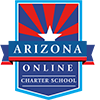The second Monday in October is a U.S. holiday celebrating the discovery of the New World. Discoverer’s Day, also known as Columbus Day, acknowledges Christopher Columbus’ finding of America, as well as the other important early explorers that came after him. Additional notable voyagers include Lewis and Clark, James Cook, Henry Hudson, and Amerigo Vespucci.
1400s
Christopher Columbus
Columbus was an Italian explorer looking to find a western trade route to Asia in 1492. Instead of finding a Northwest Passage, he landed in the Bahamas. Searching for more land, he reached Cuba and later Haiti and the Dominican Republic. Although he was unsuccessful in his voyages, Columbus believed he had reached Asia. His exploration of North America opened up Europe to a whole new world and started centuries of explorations of the Americas.
1500s
Amerigo Vespucci
Vespucci is best known for naming the South American and North American continents. He studied the constellations of the Southern Hemisphere, along with the plants and wildlife. He is the first explorer to recognize the New World as its own continent rather than thinking it was Asia. In 1507, a map was produced calling the continent America for the first time after the Latin version of Vespucci’s name, Americus.
1600s
Henry Hudson
Hudson set out to find a shorter route to Asia from Europe through the Arctic Ocean. On his third voyage attempt, he found a great river which he thought would lead all the way to the Pacific Ocean. After about 150 miles, he found out it was not a passageway and turned back. This river is known today as the Hudson River. On his fourth voyage, he explored around Greenland which is why the Hudson Strait and Hudson Bay are also named after him.
1700s
James Cook
Cook was a naval captain and navigator who is best known for his voyages of the South Pacific Ocean and accurate mapping of his expeditions. Like many of the other explorers, he was looking for a Northwest Passage for trade purposes, instead he found the Hawaiian Islands. On one of of his four voyages, he discovered Australia while also being the first to circumnavigate New Zealand. The strait between its islands is named Cook Strait after his discovery.
1800s
Meriwether Lewis and William Clark
Lewis and Clark set out on a nearly 8,000-mile expedition to the Pacific Northwest after Thomas Jefferson’s purchase of the Louisiana Territory. Their mission was to explore the western land and discover a path from the U.S. to the Pacific Ocean. Throughout their two-year journey, they both kept a detailed journal of their findings of animals, plants, and scenery. Their expedition ended the mysteries of the Louisiana Purchase and began the rise of the fur trade.


